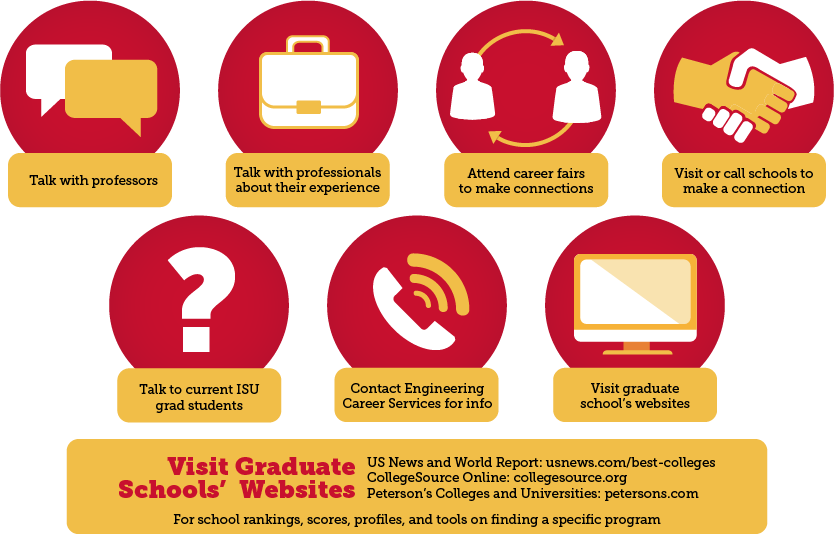As soon as your interests in graduate school begin to solidify, start researching schools and their programs. You will want to make an informed decision, and the process takes time so begin in your junior year if possible. Your career goals should largely dictate what you look for in an academic department. Attempt to identify 15 or more graduate schools with programs in your area of interest and begin collecting the information you need to make a decision. Organize this information using the Graduate School Tracker or whatever way works best for you. Your set of considerations will be unique to your situation, but you will want to consider some of the questions on the following list:
Researching Graduate Schools
- What are the admission requirements and deadlines?
- What are the degree requirements?
- Is the curriculum fixed or customizable?
- Are the school, program, and professors well respected?
- Where does the school fall in the ranking of graduate programs?
- Are any of the professors recognized as leaders in your field of interest?
- Is there a good match between the program’s research focus areas and your interests?
- Does the program have state-of-the-art capabilities?
- What financial assistance is available (assistantships, scholarships, fellowships)?
- Where is the school located, and what is the cost of living for the area?
- What do graduates go on to do professionally and what is their outcome rate?
If you are pursuing a master’s degree, the overall quality of the faculty may be more important than finding the ideal mentor. However, if you are pursuing a PhD, you will need to find a specific professor to serve as your thesis advisor. This person will guide and evaluate your work, as well as serve as your mentor. If you desire to study under the direction of a specific professor, it’s beneficial to contact him/her beforehand to ensure that he/she is looking to take on a new graduate student. If the professor is not, then you will not need to spend the time and money applying to that program. This is also an opportunity to establish a new connection in your network and obtain more detailed information about the program before applying.
For the schools that rise to the top of your list, try to identify through networking, one or more professors who conduct research in your general area of interest, and with whom you think you could work with for a number of years.
Sources of Information

